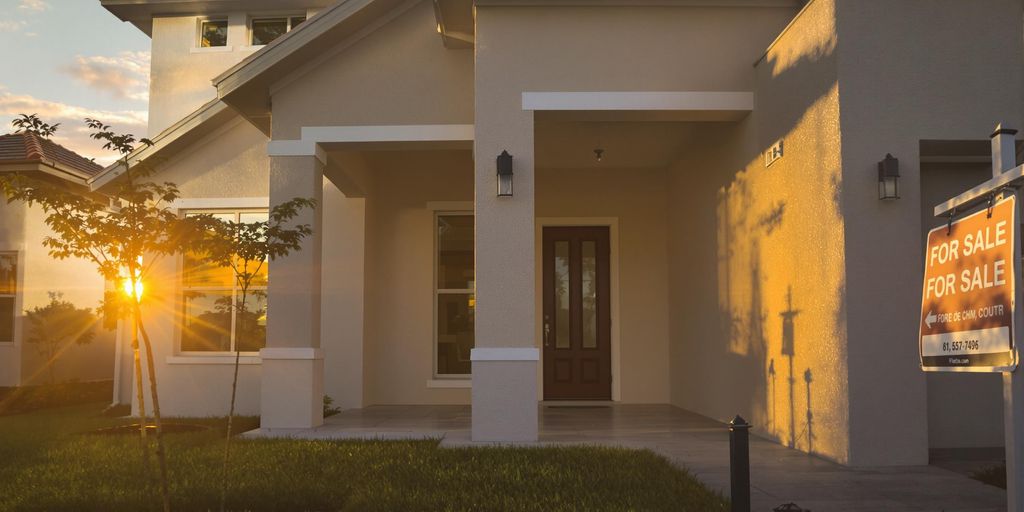Florida’s once-booming housing market is experiencing a significant cool-down, with properties lingering on the market and prices declining in several key areas. This shift marks a departure from the rapid appreciation seen during the pandemic, driven by factors such as rising interest rates, escalating insurance costs, and an increase in available inventory, signaling a more balanced, or even buyer-favored, market.
Florida’s Housing Market Cools
After years of unprecedented growth, Florida’s housing market is undergoing a notable correction. Data from April 2025 indicates a statewide average appreciation dip to -0.8%, with the median sales price falling to $390,000, below the national median. This slowdown is particularly evident in condo sales, which saw double-digit drops in April across various counties, including a 20% decline in Hillsborough and 21% in Miami-Dade.
Key Factors Driving the Downturn
Several interconnected factors are contributing to the market’s cooling:
- Affordability Crisis: Despite recent price dips, home values remain significantly higher than pre-pandemic levels. Coupled with mortgage rates hovering around 7-8%, many potential buyers are priced out.
- Rising Inventory: The market is seeing a substantial increase in active listings. In May, existing home listings were up 32% year-over-year, giving buyers more choices and reducing competitive bidding.
- Skyrocketing Insurance Costs: Florida homeowners face escalating insurance premiums, adding a substantial burden to the total cost of ownership and making the state less attractive for some.
- Investor Pullback: Higher interest rates and the prospect of declining prices are deterring investors, who previously fueled a significant portion of the market’s demand.
- Post-Pandemic Normalization: The unique conditions of the pandemic that spurred a buying frenzy, such as remote work and low interest rates, are fading, leading to a more normalized market.
Markets at High Risk of Price Decline
According to Cotality’s April 2025 data, five Florida markets are at a "very high risk" of significant price declines. These areas experienced explosive growth and are now most vulnerable to correction:
- Cape Coral, FL: Topping the risk list with a -6.5% year-over-year price decline, prices are back to spring 2022 levels.
- Lakeland, FL: Located between Tampa and Orlando, Lakeland saw strong, steady growth now facing a clear downward slope.
- North Port, FL: Another Southwest Florida market, North Port, experienced a -4.3% year-over-year decline.
- St. Petersburg, FL: While popular, St. Petersburg’s substantial price increases are now facing a more gradual but noticeable decline.
- West Palm Beach, FL: This Atlantic Coast market shows significant price volatility, indicating a struggle to find stable ground.
Other markets showing notable declines include Fort Myers (-5.3%), Punta Gorda (-4.1%), and Sarasota (-3.6%).
Implications for Buyers and Sellers
- For Buyers: The current market presents opportunities with increased inventory and potential for negotiation. However, caution is advised, with thorough research on local trends and total ownership costs, including insurance.
- For Sellers: Realistic pricing is crucial. Homes are sitting longer, and sellers should be prepared for fewer offers and potential negotiations. Overpricing can lead to prolonged market time and eventual price reductions.
While a full-blown crash akin to 2008 is not widely predicted, a significant price correction is underway, bringing the market closer to sustainable levels. The shift empowers buyers and demands realism from sellers as Florida’s housing market navigates this new, cooler climate.
Sources
- A look into Florida real estate market, home sales slowdown, WUSF.
- 5 Popular Florida Housing Markets Are at High Risk of Price Crash, Norada Real Estate Investments.
- 2 Florida Housing Markets Flagged for a Major Price Decline Risk, Norada Real Estate Investments.
- Buyers Gaining Ground as Market Shifts, | Florida Realtors.
- Florida’s Cape Coral Housing Market is the Most Susceptible to a Crash, Norada Real Estate Investments.


